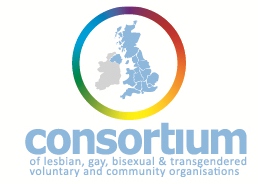The Ministry of Justice is undertaking a review on the care and management of transgender offenders and hope to get insights from a wide range of stakeholders. In order to structure their thinking, they have produced a short paper (below) that asks open questions on which they would like your thoughts and insights.
As there are quite a number of questions, they expect you may want to respond only to those that relate directly to your interest or field of expertise. Please don’t feel compelled to reply to each and every one.
Replying online: If it would be easier for you to reply on-line, they have produced a simple on-line survey using identical questions on this link, https://www.surveymonkey.co.uk/r/TGReview.
They are keen to hear from all relevant stakeholders, so please feel free to pass on the information and web link.
If you are not completing the online survey, you can email your reply to This email address is being protected from spambots. You need JavaScript enabled to view it. or by post to George Barrow, Transgender Review, Ministry of Justice (4.12), 102 Petty France, London SW1P 9AH
A copy of the terms of reference of the review, which includes details of its independent oversight, is on this link, https://www.gov.uk/government/speeches/review-into-the-care-and-management-of-transgender-offenders.
Given that they are hoping to have conclusions to the review in March, they would like any responses by 24 February.
Annotated agenda and discussion points
The review is intended to be a concise exercise that can make recommendations about policy and practice development on a subject which is both complex and changing in terms of its visibility and public understanding and expectations. The terms of reference of the review includes transgender people in custody, under community supervision or in contact with the National Probation Service when court reports are prepared, and young transgender people who find themselves in the Youth Justice System.
The review is seeking observations from stakeholders under a number of headings. This list is not exhaustive.
Legislation, terminology and recording
- What are the issues relating to terminology (such as transsexual, transgender, intersex, trans) and their definitions? In order to ensure we meet our legal obligations, what are the terms that should be routinely used and how should definitions be applied to make sure operational decisions are consistent and the language used is appropriate and respectful?
- Are the duties under the Gender Recognition Act and the Equality Act being met with regard to transgender offenders and those going through the reassignment?
- Do transgender offenders know their rights and understand how they should expect to be treated?
- To better design services and plan ahead, it is necessary to have a reliable figures and data. Figures on transgender offenders have not been routinely collected. Given the data sharing boundaries set by the GRA, how can a clearer picture of need be created for probation, rehabilitation services and custodial services?
- Are there any reliable ways to anticipate trends? For instance, does the rising referrals to gender identity clinics indicate increasing numbers of transgender people in the youth justice and adult offender caseload?
In court
- When a transgender person is in court, what issues need to be taken into account in requesting and writing pre-sentence reports and carrying out assessments (including using OASys and other actuarial risk assessment tools that include a binary [male or female] measure).
- What needs to be taken into account in recommendations on appropriate sentences, such as requirements to undertake unpaid work or offending behaviour programmes (their type and availability), especially if they are typically gender specific, like sex offender treatment programmes?
- What guidance or training is available to pre-sentence report writers and how and by whom are sentencers appropriately advised. What guidance is available to sentencers?
- When and how may the court learn of a transgender person’s status and what are the issues around this being recorded and shared? What protocols need to be in place to make sure relevant information is passed on, as it good practice as an offender works through their sentence.
- What questions or decisions could (or should) be made by the court regarding allocation to a male or female prison, following a decision on remand or making a custodial sentence? This is currently an executive decision, made by NOMS staff.
- Are there practical issues faced by transgender prisoners around court cells and prisoners’ transport between police custody, court or prison (prisoner escort and custody services)?
In the community
It is very likely that the largest number of transgender people convicted for criminal justice offences are not sentenced to prison but serving a community order. Nearly all people released from prison, even after serving short sentences, will be on licence and under community supervision.
- What training and support is appropriate to make sure that community rehabilitation and NPS staff assess and manage transgender offenders well, engaging them in way that reduces their likelihood of reoffending and protects the public in the long term.
- How are transgender offenders best involved in decisions that affect them? What weight should be given to their preference on issues such as location for supervision or interventions?
- Are complaints processes adequate?
- For those on licence, what issues may need to be addressed to reduce the risk of recall (following a breach of the conditions on which they are released).
- How should staff training be delivered and, given the infrequency of a transgender offender being on the case-load, to whom should staff look to for support and expert advice when the need arises?
- How do CRC and NPS staff access specialist advice if they require it?
- Community rehabilitation companies are commissioned by NOMS and required to meet certain standards. What should contract managers be asking about or looking for when monitoring the contact to understand the quality of services to transgender offenders?
- What role can be played by services provided by the voluntary sector – either those expert on working with offenders or those supporting the wider transgender community? Frequently in rehabilitation, those with “lived experience” are highly effective in motivating others to change, as mentors for instance. How can the sector help in this regard, and how can it be organised and paid for?
- Is community support is available, for instance to reduce transgender offenders’ isolation, and how can it be accessed?
- Multi-agency public protection arrangements (MAPPA). Are there particular issues that need to be considered when managing transgender offenders who come under MAPPA because sexual and/or violent offending history and their risk?
- What issues need to be considered in relation to the victims of sexual and/or violent transgender offenders who are entitled to be informed about their offender’s progress in prison (such as moving to open conditions) and their release.
- What issues need to be considered in the management of approved premises (sometimes known as hostels), which provide a structured residential environment for, typically, higher-risk offenders?
In custody
Many of the issues relating to custody are included in PSI 7/2011. In this dialogue we are seeking to explore where the PSI needs be developed, and whether any underlying assumptions or principles need to be changed.
- Allocation decisions and changes to allocation. These decisions are currently made by prison governors, in consultation with a range of others. Are they the correct people to make this decision, what information do they need for this decision and how are they supported (through training for instance) to ensure consistent good practice.
- In what circumstances is it appropriate to accommodate transgender prisoners separately from the wider prison population? Should integration or separation be the overarching principle?
- How are transgender prisoners best involved in the decisions that affect them. What weight should be given to an individual's preference on allocation?
- Are facilities for transgender prisoners adequate, for example in relation to day to day personal care and privacy? Should there be national standards relating to issues such as canteen provision or access to showers?
- Do complaints procedures cater adequately for transgender prisoners, including complaints about healthcare issues?
- Access to clinicians and health services from prison. The Prison Service operates on the principle of equivalence to the community for health services received by those in custody. Reassignment and associated treatments are long processes, involving a mix of clinicians. What are the common problems faced by transgender prisoners in this regard, and how can they be ameliorated?
- In some cases, transgender offenders may have mental health or personality disorder problems that can complicate their management. It would be useful to understand in what circumstances and why, personality disorder or acute mental health problems become the primary issue with regard to treatment and care.
- Safety: Given the specific vulnerability of transgender prisoners, are there specific steps (additional to those applying to all prisoners) that could further reduce the incidence of self-harm or self-inflicted death?
- Further, in women’s prisons, what safety issues may need to be addressed when a transgender woman (male-to-female) prisoner is considered for place in the female estate?
- Training: What are the best ways of training staff about gender reassignment and transgender issues? Given the relatively low numbers of transgender prisoners, how do can we ensure that staff have an appropriate level of awareness of transgender and, when needed, unimpeded access to reliable practiced advice that is consistent with policy.
- How are voluntary organisations working in the transgender community engaged in work in prisons and through the gate services? How best can these services be commissioned, and by whom?
Children and young people
- What are the specific issues likely to arise for younger transgender people managed by youth offending teams? How can transgender young people in trouble be diverted from the criminal justice system?
- What special considerations apply to children affected by these issues within the criminal justice system, both in the community and in custody?
Policy formulation and Oversight
- What arrangements need to be made for future policy development in this area?
- Are oversight provisions adequate? For example, should Inspections conducted by HMCIP and HMIP, Ofsted and the CQC pay closer attention to these issues and are the expectations set and questions asked sufficient?









